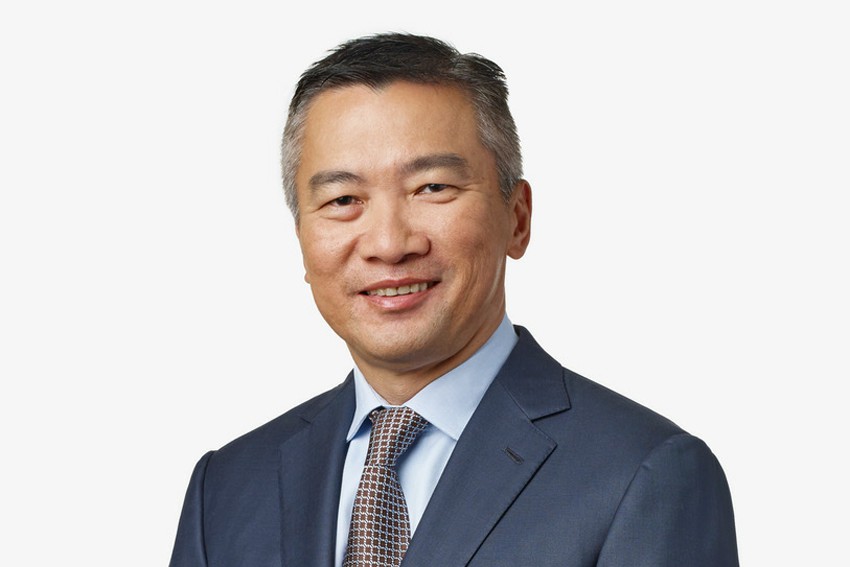Singapore’s SGX punches well above its weight as a multi-asset global financial center with a wealth of offerings for wise investors from the United States and from around the world, says Chief Executive Officer Boon Chye Loh

The United States has invested US$630 billion in the ASEAN member states. What kind of role does the United States play in Singapore’s economy?
Singapore is right at the heart of a blossoming ASEAN. It's not just the investments by the United States into Singapore and ASEAN, and Singapore investing in the United States. If you look only at financial flows, Singapore is one of the top 20 countries where U.S. investors have securities investments. At the end of 2017, U.S. investors held US$143 billion worth of Singapore equities, up from US$100 billion the year before. Clearly, the United States understands and invests in this part of the world. By investing in Singapore, you’re getting exposure to ASEAN and Asia more broadly.
What is the role that SGX plays in the development of ASEAN and what is the responsibility of Singaporean financial institutions in the development of ASEAN?
ASEAN offers investors the growth story they are looking for and markets like SGX can help build and facilitate global connectivity between investors and issuers. SGX is the go-to fund-raising destination for ASEAN companies going global, and global companies look to us as a gateway into ASEAN.
How do financial institutions or how does Singapore participate in the financing of infrastructure itself? Let me illustrate using our real estate sector which we have successfully globalized. It took 10 years for SGX to become the largest real estate investment trust (REITs) and property trust hub in Asia (ex-Japan) with more than 70% of the REITs holding foreign assets. The REITs sector today covers not just Asian companies which have monetized their Asian assets and are attracting U.S. and European investors. We now also have pure-play European and U.S. REITs listing in Singapore to gain access to Asian investors.
ASEAN has massive infrastructure needs which require financing. Financial development and financing go side-by-side with infrastructure needs. Part of Singapore’s capital markets role as a hub is to facilitate some of this financing. We can provide a capital markets platform where financing can come in different formats, and that will allow infrastructure financing needs to be met.
We don't just look at companies coming here for an IPO. It's not a means to an end because subsequent funding is important. IPO is just one of the means. You also cannot forget the private markets where companies can tap private money before they get ready for listing. Equities and IPOs are what catches attention but there's also the debt market. Singapore is very well-known in this part of the world as a fixed income hub. SGX has over 3,000 fixed income issuers across almost 50 countries, as far as Latin America and Central America, in 19 currencies.
You've diversifying your product offering to your clients in a multi-asset platform, from fixed income and equity all the way to derivatives. Could you tell us about that diversification and its results so far?
This stems from Singapore as an international financial center. We need different types of investors. There is close to US$2.1 trillion of assets under management in Singapore, across different types of investors. Besides institutional investors which Singapore has as a big wealth-management center, we now have different European and U.S. family offices here in addition to the Asian sovereign wealth funds and pension funds. So it’s a diverse investor pool.
Secondly, we are a multi-asset financial center too. In the capital markets arena, it’s fixed income, it’s equity, it’s commodity, it’s currency and then obviously besides the capital markets, we have transaction banking. It's a big business for many of the institutions here. Our role as a multi-asset international financial center is to try and cater to investors with their investment and hedging needs across different asset classes. We've embarked on that three to four years ago. The results are beginning to bear fruit.
Singapore is the third-largest foreign exchange center in the world and Asia's biggest. Our FX business has grown rapidly. Top line revenue in FX doubled from 2017 to 2018. We've also got a commodity business anchored on SGX’s strengths in iron ore and Singapore’s position as a regional commodity hub, where almost 500 big global international commodity firms are based here. That is also helped by the fact that we have a maritime hub in Singapore. Fixed income trading is a business that we invested in recently, about two years ago. We like that diversification which is now beginning to come in place. The results have shown in 2018 and we'll build on that.
What is the role of America in the development of ASEAN and of Singapore and the role they play within the ecosystem of SGX?
I mentioned the U.S. investors investing in in our securities market. That has grown from US$100 billion in 2016 to US$143 billion in 2017. The U.S. companies are a big component of the Singapore economy. The United States is the biggest capital market of the world. One of our core sectors, REITs, has now attracted American investors and we expect more U.S. REITs to come our way. Singapore is a market where there are a lot of linkages from an investment standpoint. Similarly, Singaporean companies are also big investors in the United States.
0 COMMENTS